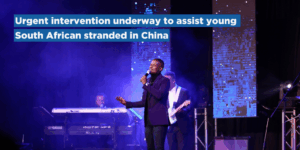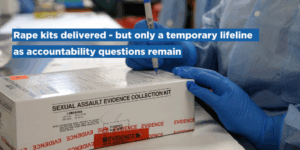The City of Cape Town, in support of its Strategic Business Partner (SBP), the Atlantis Special Economic Zone for green technologies, and their service provider Lulalab Foundation, attended the launch yesterday, 9 December 2021, of 100 innovative solar geysers that will be installed at informal homes in Witsands and Pella, in Atlantis, by mid-December. This multi-beneficial project aims to provide residents with access to warm water by harnessing solar power, while encouraging recycling, reducing waste going to landfill and providing temporary job opportunities for locals.
More than 750 2L bottles have been collected during a campaign by the ASEZ and Lululab to make these innovative solar geysers for the 100 households in Pella and Witsands.
The City’s Mayoral Committee Members Alderman James Vos (Economic Growth) and Councillor Beverley van Reenan (Energy and Climate Change) attended the launch, which signaled the start of the installations at the homes of the beneficiaries.
Each geyser is made up of five 2l recycled plastic bottles set into a made-for-purpose casing attached to a 50l water drum that is heated by the sun. It will be connected to an existing tap on the property. Where a tap is not available, the drum will get filled by the entrepreneurs responsible for maintenance, also doing the installations.
Alderman Vos said, ‘We are excited to see the initiative being done by the ASEZ and Lulalab, which is harnessing more than just solar power to provide households with access to warm water for sanitation. It encourages recycling and diverting waste from landfill, as well as creating jobs for locals for the next year. These locals will be upskilled with technical skills to assemble and install a geyser, via New Venture Creation training, which will help them to be more marketable for future job opportunities.’
The Lulalab first rolled out this project in Hopefield, Soweto, about a year ago. The Pella and Witsands communities are its second group of beneficiaries.
‘With informality growing in Cape Town and in other urban centres in South Africa, innovation and greater partnerships are required. The City is looking to strengthen its efforts in decreasing energy poverty in low-income households. Solutions and partnerships such as this one are, therefore, welcome. It’s important that all our residents begin to make their homes future-fit. If residents are able to spend more money on making smart changes around their home, they are encouraged to consider installing a solar water heater or heat pump, among others. These will cost more upfront, but residents could save as much as 25% on their monthly electricity costs,’ said Councillor van Reenen.
Please visit https://savingelectricity.org.za/ for more no-cost, low-cost and invest-to-save smart tips.




